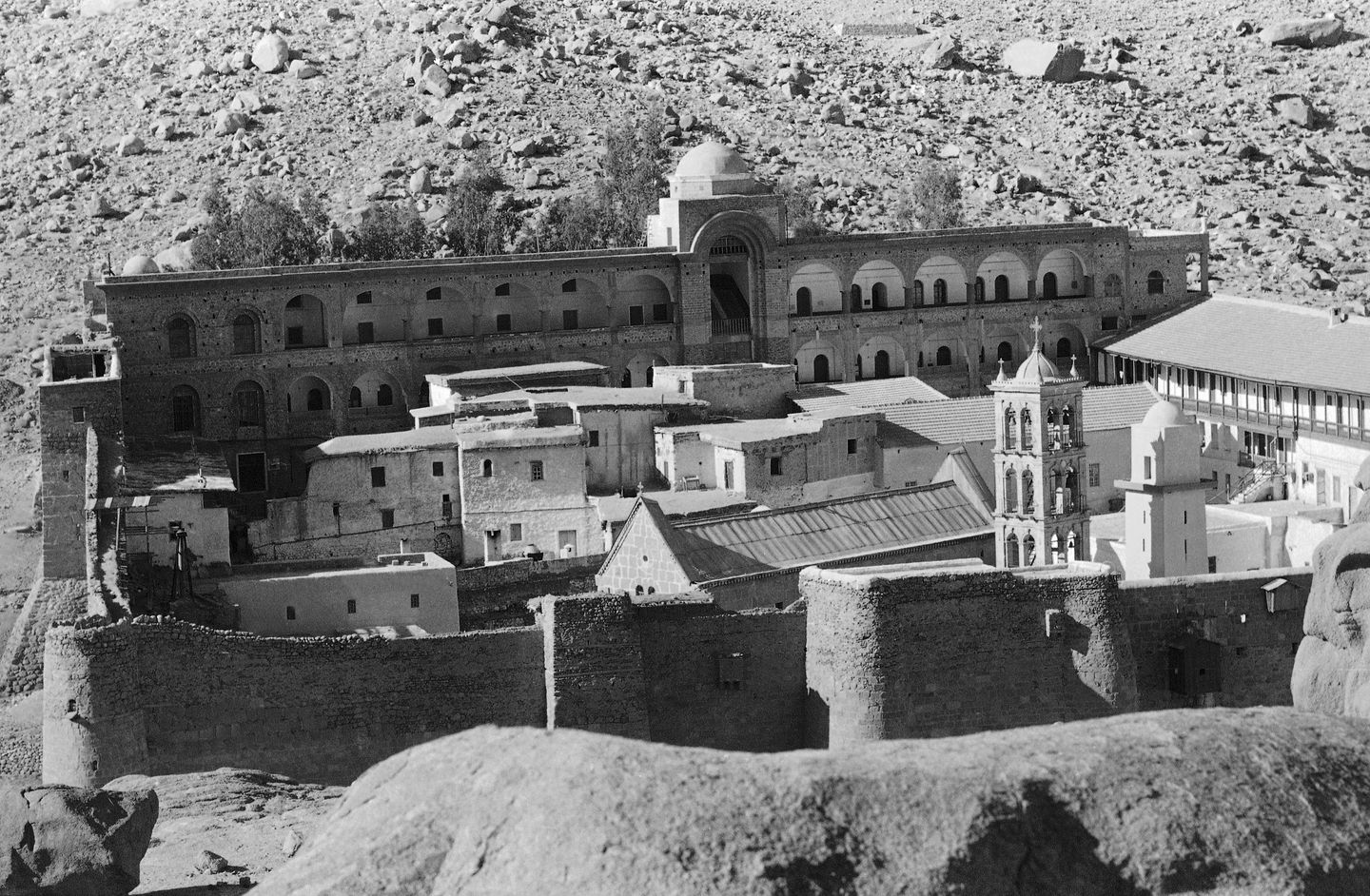
An Egyptian court has declared state ownership of the land surrounding St. Catherine’s Monastery in Sinai, sparking backlash from Christian leaders who say the ruling threatens one of their oldest sacred sites.
The May 28 decision by the Ismailia Court of Appeals concluded that although the monastic community may carry out religious functions and retain access to its historic property, the land itself falls under public ownership.
The court reaffirmed the state’s control over uninhabited outlying areas near the monastery, which lack documented ownership, according to multiple reports. Meanwhile, church officials and the Greek government have expressed concern that the ruling threatens longstanding religious protections.
The monastery, founded in the sixth century and governed by the Greek Orthodox Church of Sinai, sits at the base of Mount Sinai and revered by Christians as the site of the Burning Bush in the book of Exodus.
St. Catherine’s also operates the world’s oldest continuously functioning library and provides home to a trove of religious manuscripts and relics — including the well at which Moses is believed to have met his wife Zipporah.
“The monastery’s properties are being seized and confiscated,” said Archbishop Ieronymos II of Athens and All Greece in a statement.
“This spiritual beacon of Orthodoxy and Hellenism is now facing a genuine threat to its existence. With deep sorrow and indignation, I call upon the Greek government and international bodies to recognize the magnitude of this danger and to take urgent action to safeguard fundamental religious freedoms at the sacred monastery of Sinai,” he added.
Egypt’s foreign ministry has rejected those characterizations, as officials tell media the monks will have guaranteed continued access to the monastery as well as its immediate surroundings.
The ministry stressed that Egypt remains committed to protecting the monastery’s spiritual and historical character too, insisting the ruling is merely “the first instance in which the legal status of the monastery has been regulated,” the Catholic News Agency reported.
It’s a claim Orthodox Christian leaders aren’t buying.
Archbishop Elpidophoros of the Greek Orthodox Archdiocese of America said the situation “threatens to confiscate the monastery’s property and disrupt its spiritual mission,” calling it “deeply troubling.”
The Ecumenical Patriarchate of Constantinople also expressed disappointment in the ruling and warned that treating the monks as mere users of the land undermines their long-standing property rights.
The patriarchate, which leads Orthodoxy on a first-among-equals basis, urged Egypt to uphold the monastery’s historical ownership, which it noted had been respected by Muslim authorities for centuries.
The underlying dispute traces more recently back to 2015, when authorities in Egypt’s South Sinai Governorate initiated legal proceedings over land declarations submitted by the monastery in the early 1980s.
After negotiations involving local officials, the monastery and the Greek government, a draft agreement appeared close, but ultimately collapsed, according to Greek media.
“Though we agreed on a text, they altered it and presented something entirely different,” said Archbishop Damianos of Sinai, according to Catholic outlet The Pillar.
The Greek Orthodox Patriarchate of Jerusalem said it would monitor the situation closely and respond to any “encroachment” on access to the monastery. It reaffirmed its ecclesiastical authority over the site while welcoming Egyptian statements expressing respect for the monastery’s religious status.
Egypt President Abdel Fattah El-Sisi reportedly addressed the matter directly in a phone call with Greek Prime Minister Kyriakos Mitsotakis on May 30.
A delegation led by Greek Foreign Minister Giorgos Gerapetritis is expected to travel to Cairo for further discussions, according to several reports.








